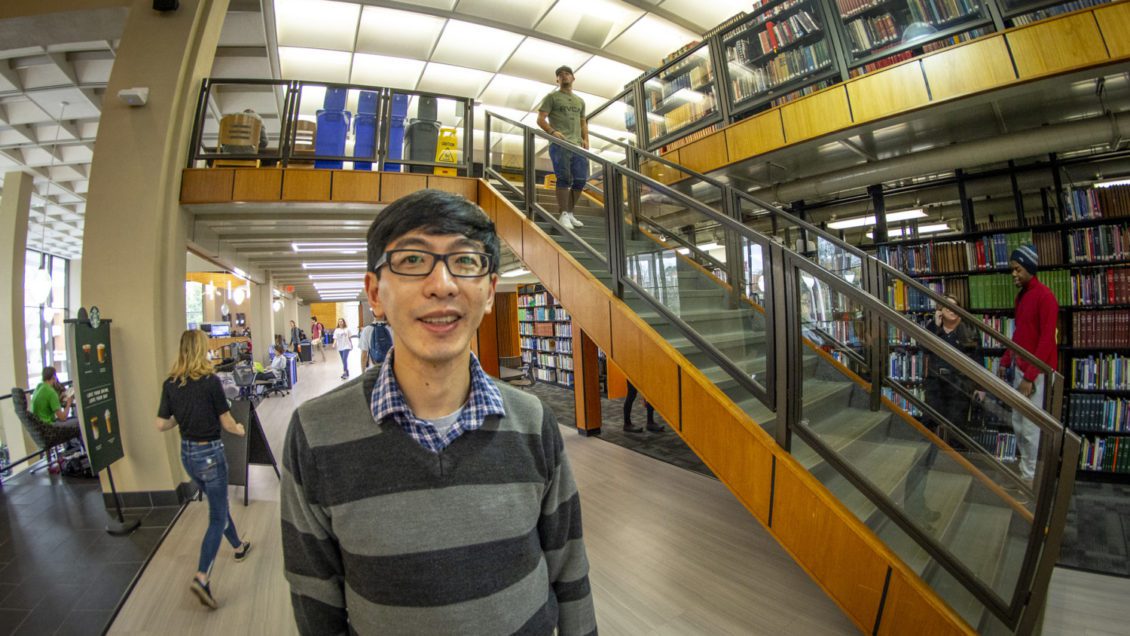 CLEMSON – The idea of free and open sharing in education will be the focus of two weeks of events at the R.M. Cooper Library March 4–13. The event is organized by the library’s Technology unit, instruction team and subject librarians, with support from Clemson University Press, Clemson Online and the Office of Teaching Effectiveness and Innovation and is free to attend.
CLEMSON – The idea of free and open sharing in education will be the focus of two weeks of events at the R.M. Cooper Library March 4–13. The event is organized by the library’s Technology unit, instruction team and subject librarians, with support from Clemson University Press, Clemson Online and the Office of Teaching Effectiveness and Innovation and is free to attend.
Open Education seeks to scale up educational opportunities by taking advantage of the power of the internet, allowing rapid and essentially free dissemination, and enabling people around the world to access knowledge, connect and collaborate. Materials can be translated, mixed together, broken apart and openly shared again, increasing access and inviting new approaches.
This innovative approach to education has had proven positive results for students and teachers at institutions of learning all over the world. Perhaps the biggest selling point is that professors can save students money by switching to high quality, multi-media instructional materials instead of exclusively using expensive textbooks. (The cost of college textbooks has risen over 1,000 percent since 1977, a rate much faster than tuition and other student expenses.)

“Textbook cost is a big problem that is only getting worse, but it’s been helped quite a bit by Open Education,” said Yang Wu, Clemson Open Resources librarian. “In the last two years book prices have been stemmed by Open Education practices. If an instructor or a student feels like they need to have a hard copy of a book, we negotiate an agreement with Clemson University Press and the bookstore to have copies printed and sold in the bookstore very cheap.”
Open Education Resources (OER) is tailored for much more than helping students, Wu said.
“I’m interested in getting faculty and administrators involved. It’s about promoting more innovative approaches to teaching. Textbooks aren’t everything. Sometimes an instructor will find that a textbook doesn’t cover everything they want to teach. The dilemma is do they assign two textbooks, or just use the one. OER offers a better alternative by making available a vast amount of online resources for instructors to use legally, and for free.”
With OER a professor can build a curriculum by picking and choosing chapters from different textbooks, which results in more creative classes. There are also Ted Talks and YouTube videos created by universities that can be used.
“A lot of OER is geared towards students doing their own research and their own learning,” said Wu. “Some people have even created online games and activities that professors can use. This is about designing more flexible courses and changing the way you teach.”

The newest trend is getting rid of a required textbook but to get the kids to do their own research in a creative way, said Wu. One way is to have them publish their assignments online. For instance, in one class students are assigned specific topics which they then create Wikipedia pages for or edit and modify existing ones. That input then adds to the permanent online knowledge database.
That way, said Wu, “the students feel like they’re doing something worthy and have more incentive.”
Wu estimates between one and two dozen professors are currently using the Open Education system at Clemson, but he would like to see many more. There is even a $2,000 Clemson OER Faculty Stipend for professors who use OER in their class.
There’s another good reason to use OER, Wu said – it makes for better, more engaging classes.
“We did some research and found that up to 80 percent of students don’t buy the textbook for their classes. One reason is the expense, but another reason is they don’t find the textbook useful, or they find it redundant,” Wu explained. “OER materials are meant to be customized, selectively used, and combined to serve an instructor’s needs.”
OER started at top level institutions like Harvard and MIT and was subsequently adopted by other colleges including the University of Georgia, University of Minnesota and Penn State, which have enhanced their reputations by using and creating OER and hosting OER materials online. Wu is ready to help Clemson do the same.
Open Education Week is a global celebration that aims to raise awareness about the Open Education movement and its impact on teaching and learning worldwide. For more information including a list of guest speakers click here.
Get in touch and we will connect you with the author or another expert.
Or email us at news@clemson.edu

